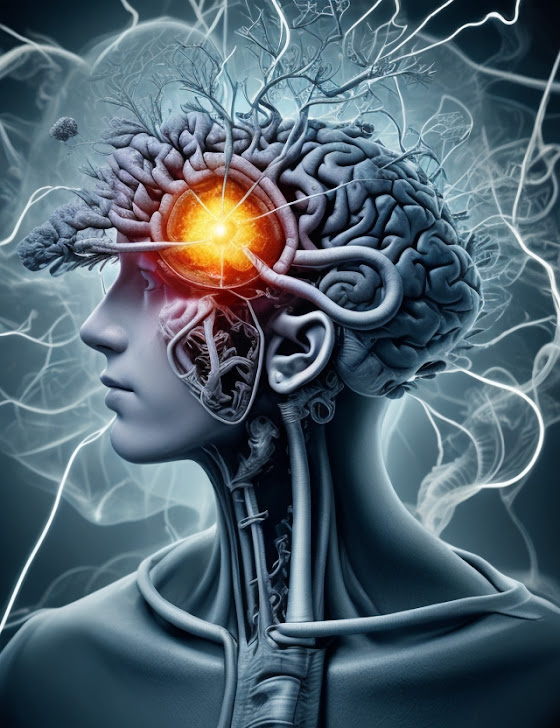The Hidden Threat to Your Brain: Unmasking the Impact of Clutter
In the depths of our lives, an unseen adversary lurks - one that impacts not just our surroundings but the very core of our cognition. It's a threat we've scarcely acknowledged, yet it casts a shadow on our ability to think, to focus, and to thrive. We invite you to journey with us into the fascinating intersection of our cluttered spaces and our cognitive well-being, as we uncover the hidden menace of clutter and its profound consequences. The story begins with a riddle: What does your cluttered room say about your mind?
The Clandestine Crisis: Clutter and Cognitive Chaos:
We've all faced the ubiquitous challenge of keeping our spaces tidy – the battle against the rising piles of possessions, the shelves packed to the brim, the closets teetering on the edge of chaos. But what if we told you that the consequences of clutter are not just a matter of aesthetics, but a silent assailant of your cognitive abilities?
Enter the Anxious Mind:
Imagine the world through the lens of someone living amidst clutter. Their life unfolds amidst a visual disarray, a constant reminder of things left undone. Papers, books, and objects competing for attention. It's an environment rife with distraction, a breeding ground for anxiety. As the clutter grows, so does the burden of sustaining focus. The mind wades through the chaos, but it's exhausting. Each day brings a sense of unease, as if the clutter is whispering, "You're not in control."
The Distant, Unwanted Tomorrow:
Now, picture a future where nothing changes, where the clutter remains unaddressed. The whisper becomes a roar. The inability to sustain attention leads to missed opportunities, stalled progress, and perhaps even strained relationships. The cognitive chaos of clutter becomes a barrier to growth, a stumbling block to personal and professional success.
In this cluttered future, frustration looms large. Simple tasks become daunting challenges. The mounting disarray invades not just your physical space but your headspace. A sense of inadequacy settles in, and the weight of disorganization becomes a constant companion. It's a future where the clutter isn't just in your room; it's in your mind.
A Beacon of Hope Amidst the Clutter: Practical Solutions Await:
But let us assure you, our journey isn't all doom and gloom. The groundbreaking research we've unveiled has a silver lining - actionable solutions for the cluttered mind.
Here's a glimpse of how you can steer your cognitive ship back on course:
1. Declutter in Small Steps: Don't aim to tackle everything at once. Start with small sections, like your desk or a drawer. Breaking it down into manageable tasks makes the process less overwhelming.
2. Set Clear Goals: Establish clear, achievable goals for your decluttering mission. This not only guides your actions but also gives you a sense of accomplishment as you achieve each goal.
3. Create a System: Once you've cleared the clutter, create a system to maintain order. Assign a designated place for each item and make it a habit to return items to their rightful spots.
4. Digital Declutter: Don't forget to declutter your digital life. Organize files, emails, and apps. A tidy digital space translates to a clearer digital mind.
5. Seek Professional Help: If the clutter seems insurmountable, consider seeking help from a professional organizer or therapist. They can provide valuable guidance and support.
By implementing these practical solutions, you can transform your cluttered reality into a space of productivity and clarity.
Join the Movement: Share the Discovery:
Now, as you stand at the crossroads of clutter and clarity, we invite you to join our movement. Share this revelation with friends, family, and colleagues. Together, we can empower minds to break free from the silent grip of clutter and thrive in the world of cognitive clarity.












Comments
Post a Comment